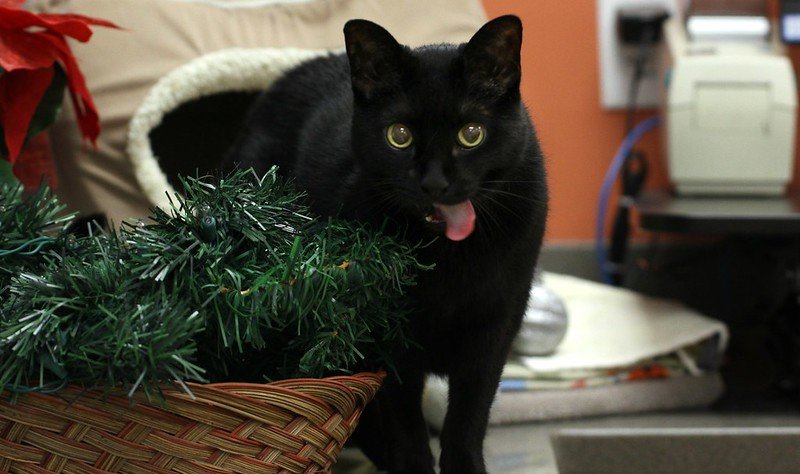
When someone talks about the ragdoll cat, we imagine a pointed face with striking blue eyes. But do you know about the black ragdoll cat? With the other combination of colors and patterns that Ragdolls come in, the black Ragdoll cat has captured the interest and hearts of many cat lovers. Black Ragdoll has a royal appearance with amazing dark fur. they are also known for their affectionate and friendly demeanor. Often they are described as dog-like because they follow their owners around. We will explore what makes the black ragdoll cat special and how to care for them. We’ll also answer some commonly asked questions about black Ragdolls in this blog.
Breed Overview
0rigin: California
Personality: Friendly, easygoing, cuddly, sociable
weight: 20 pounds+
Length: 40 inches+
Coat Length: Long hair
Coat Color: cream, red, Chocolate, black, blue, lilac, and seal
Coat Patterns: bicolor, mitted, van
Eye color: Blue, green, yellow
Lifespan: 17 years+,
Characteristics of Black Ragdoll Cat
The appearance of Black Ragdoll Cats
Black Ragdoll cats are less common than color variations like seal, blue, or lilac. Generally, Most Ragdoll cats are pointed, meaning they have darker colors on their ears, face, paws, and tail, but the rest of their body is lighter. however, a fully black Ragdoll does not fit the standard pointed pattern, which can sometimes lead to confusion when identifying the breed. A black Ragdoll also has the same silky, medium-to-long coat. Their amazing dark fur creates a royal appearance. They have large bushy tails and green or yellow eyes. A purebred Ragdoll should have blue eyes; a black Ragdoll may have different eye colors due to genetics.
Personality And Temperament
Black Ragdolls are very affectionate cats, like the other ragdoll cats. They are good with kids and other pets. They are not that playful and energetic cats; they are more laid-back cats. are more likely to cuddle on the couch than cause mischief. Even their name ‘Ragdoll’ comes from their overlook to go limp when picked up. They like to welcome their owners at the door, enjoy living carried around, and prefer staying close to their human companions; ragdolls are fairly intelligent; a medium level of exercise is enough for them. If you want a cat that always wants to be by your side, then Black Ragdoll can be the one for you.
Caring For A Black Ragdoll Cat
Nutrition and Diet
A balanced and nutritious diet is important for your cats’ overall health and well-being. Feed your cat high-quality ‘cat food’ rich in protein and tailored to their age, weight, and activity level. Generally, Ragdolls are tending to obesity and need careful monitoring of their food intake. If you want to give them treats, choose healthy, low-calorie options to prevent weight gain. As some Ragdolls prefer running water, ensure they can access fresh water. If your Ragdoll has specific health problems, consult your veterinarian before completing any dietary changes.
Grooming
Despite their long, silky, soft coats, Ragdolls are fairly low-maintenance in grooming. Yet, some regular maintenance is required to keep them looking their best:
Brushing: Ragdolls should be brushed at least once weekly to extract loose hairs and control matting. A slicker or a metal comb brush works well for their fluffy, soft fur. In shedding season meaning in the spring and fall you may need to brush more often to manage hair around the house.
Bathing: Ragdolls are normally clean cats and they don’t need frequent baths. If required, an occasional bath using a cat-specific shampoo can help keep their coat fresh.
Nail Trimming: Routine nail trimming is necessary for every cat to prevent overgrowth and discomfort. Most Ragdolls handle nail trimming well, specifically if introduced to it from a young age. Dental Care: Dental health is essential for Ragdolls. Brushing their teeth regularly with cat-safe toothpaste and supplying dental treats can help control dental diseases
Health Consideration
Ragdoll cats are normally healthy, but like all breeds, they have specific health concerns that likely owners should be aware of. Here are some of the most common health issues associated with Ragdoll: Hypertrophic Cardiomyopathy (HCM): HCM is the most common heart disease in cats and can impact Ragdolls also. It’s a genetic disorder that causes the heart muscle to condense, leading to reduced heart function. Routine veterinary check-ups and genetic testing are essential for early detection and control.
Obesity: Ragdolls are not too much active. they are prone to obesity because of their laid-back nature. health problems, like diabetes, arthritis, and heart disease are the cause of obesity. observing their diet and also ensuring that they get enough exercise. exercise is vital for maintaining their health and weight.
Training and Socialization
ragdolls are smart cats. You can teach them to execute simple tasks and respond to commands. They generally take to litter training easily, especially when introduced to the litter box early on. also keep your cats’ litter box clean and in a calm, accessible place. Give them positive support training to allow your ragdoll to learn behaviors like sitting, coming when called, or even playing fetch. Engage your Ragdoll in interactive play sessions to stimulate their mind and keep them physically active. Toys like feather wands, laser pointers, and puzzle feeders are great options.
Common Questions About Black Ragdoll Cats
Are Black Ragdolls Rare?
Are black Ragdoll cats rare? The answer is yes! When we think about Ragdoll cats, we expect the traditional color-pointed pattern with a light body and darker extremities.
Black Ragdolls are rare because they don’t show the signature color-point pattern typical of the breed. Rather, they have a solid coat and jet-black hair. also, they don’t have the blue eyes typical of the breed. However, they may not conform to the signature look of a ragdoll but in the case of temperament, they also have a friendly, loyal, laid-back, and affectionate nature.
